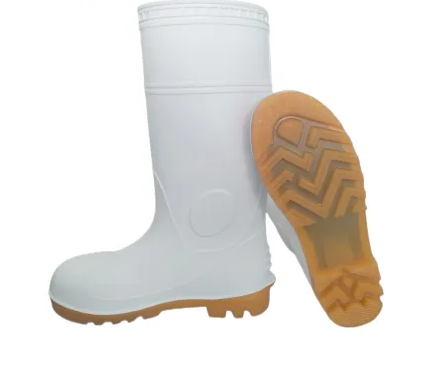1: Ensuring Food Safety Through Proper Footwear
In the food industry, safety is paramount, and this extends to every aspect of the workplace, including what employees wear on their feet. Food industry safety shoe guidelines are a crucial component of maintaining a safe and hygienic environment. In this article, we will explore the key points surrounding these guidelines to understand why they are essential.
2: The Importance of Hygiene
The food industry operates under stringent regulations to ensure the safety and quality of the products they serve. One of the primary concerns is maintaining hygiene, and this starts from the ground up—literally. Food safety begins with the shoes employees wear, and there are several reasons why this is crucial.

3: Preventing Contamination
Footwear can inadvertently introduce contaminants into the food processing environment. This can include dirt, bacteria, and even foreign objects. Food industry safety shoes are designed to minimize this risk by providing a barrier between the worker's feet and the floor, preventing contaminants from being tracked into the workspace.
4: Slip and Fall Prevention
Slips and falls are common workplace accidents in the food industry, often resulting from wet or greasy floors. Safety shoes with non-slip soles can significantly reduce the risk of accidents, protecting employees from injury and preventing food from being spilled or contaminated in the process.
5: Choosing the Right Safety Shoes
Selecting the appropriate safety shoes for the food industry is a critical decision. Here are some key factors to consider:
a. Material: Food industry safety shoes are typically made of materials that are easy to clean and sanitize, such as rubber or synthetic materials. Leather shoes, which can absorb moisture and contaminants, are generally not recommended.
b. Slip Resistance: Look for shoes with slip-resistant soles. They should provide good traction on wet and oily surfaces to prevent accidents.
c. Closed Design: Shoes should have a closed design, covering the entire foot. This reduces the risk of liquids or food particles entering the shoe.
d. Easy to Clean: Choose shoes that are easy to clean and sanitize. They should withstand frequent washings without deteriorating.
6: Compliance with Regulations
Regulatory bodies, such as the Food and Drug Administration (FDA), set guidelines for food industry safety footwear. It's crucial for businesses in the food industry to comply with these regulations to ensure food safety and avoid legal repercussions. Non-compliance can lead to fines, recalls, and damage to a company's reputation.
7: Employee Training
Implementing safety shoe guidelines also involves educating employees about the importance of proper footwear. Training should include how to choose, wear, and maintain safety shoes. Employees should understand the role their footwear plays in food safety and personal safety.
8: Regular Inspection and Replacement
Regular inspection and maintenance of safety shoes are essential. Shoes can wear out over time, reducing their effectiveness. Employers should establish a protocol for inspecting and replacing safety shoes as needed to ensure they continue to provide adequate protection.
9: Conclusion
In conclusion, food industry safety shoe guidelines are a critical component of ensuring food safety and workplace safety in the food industry. Proper footwear can prevent contamination, reduce the risk of slips and falls, and help businesses comply with regulations. Choosing the right safety shoes, providing employee training, and maintaining footwear are all essential steps in upholding these guidelines and creating a safer and more hygienic food processing environment.




Comments
Please Join Us to post.
0